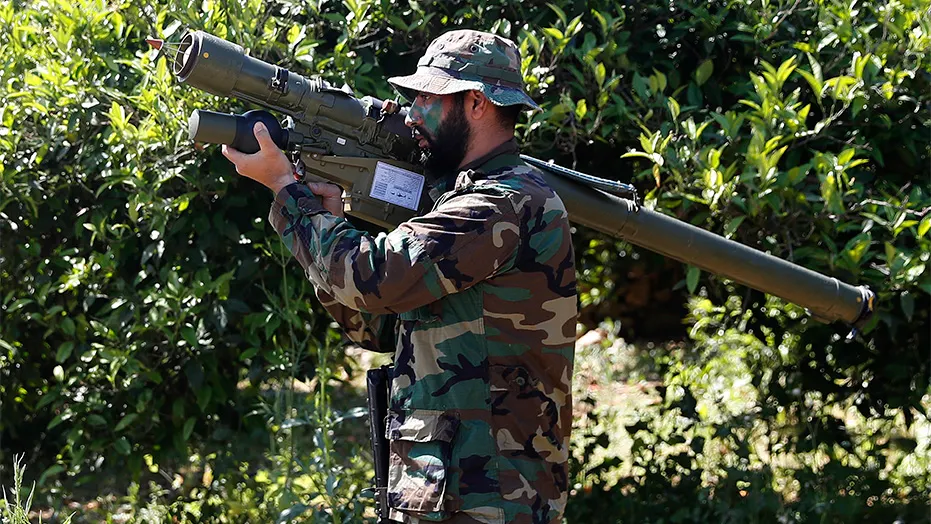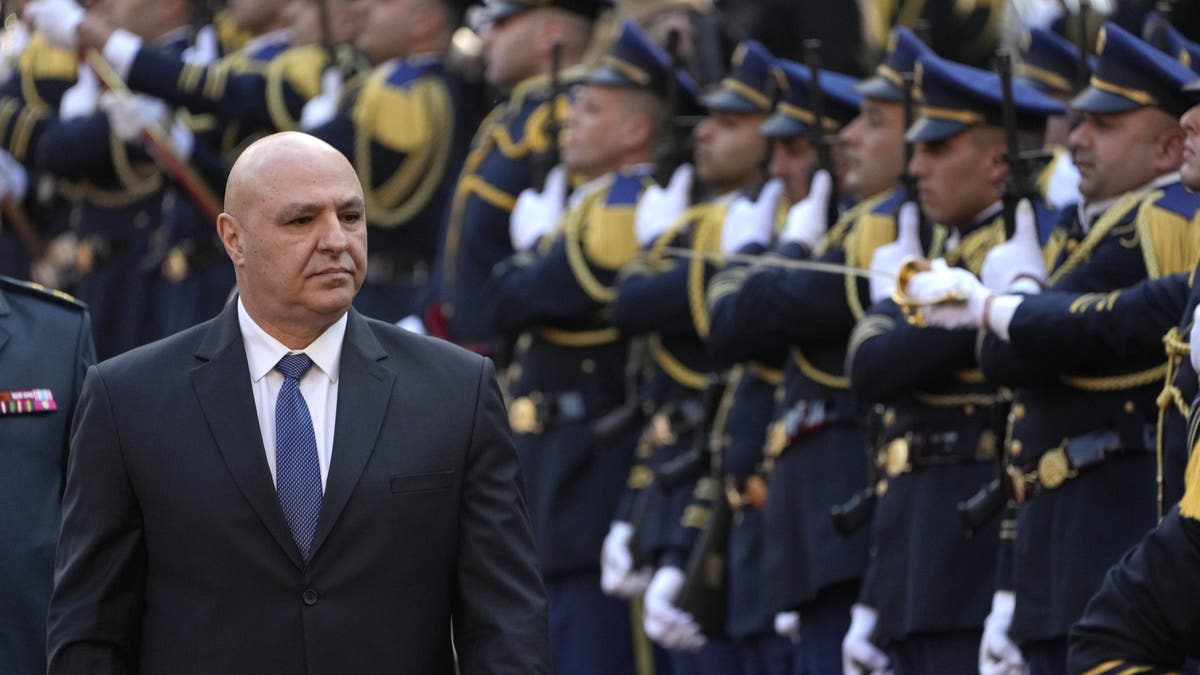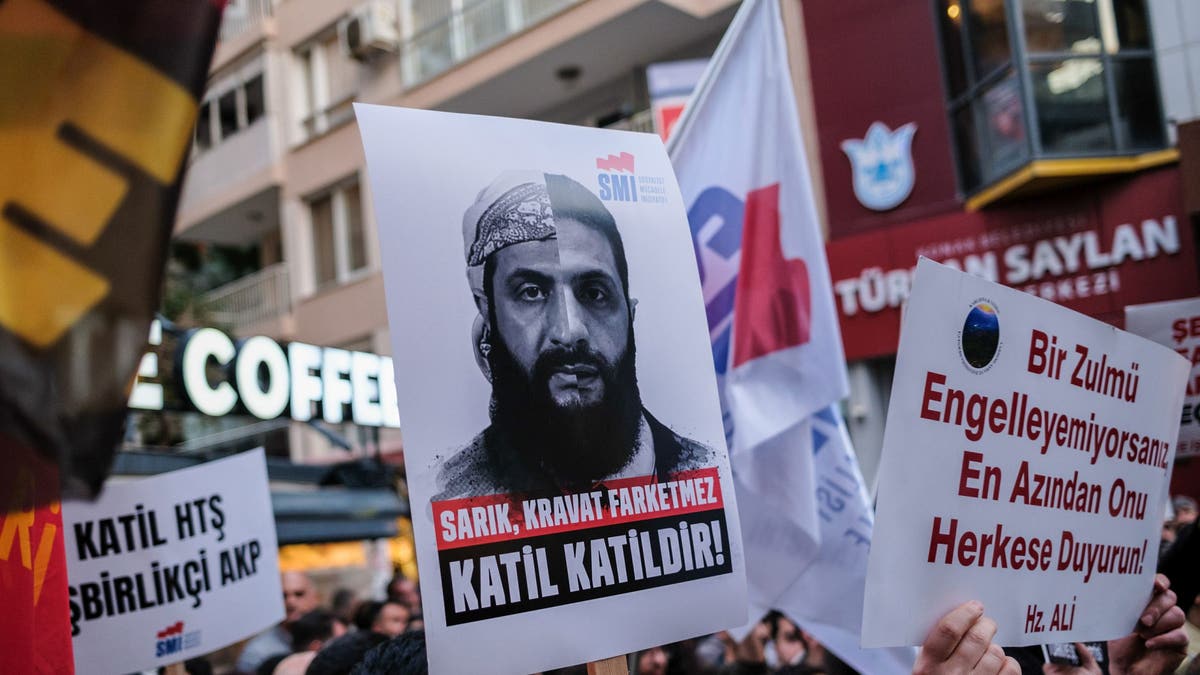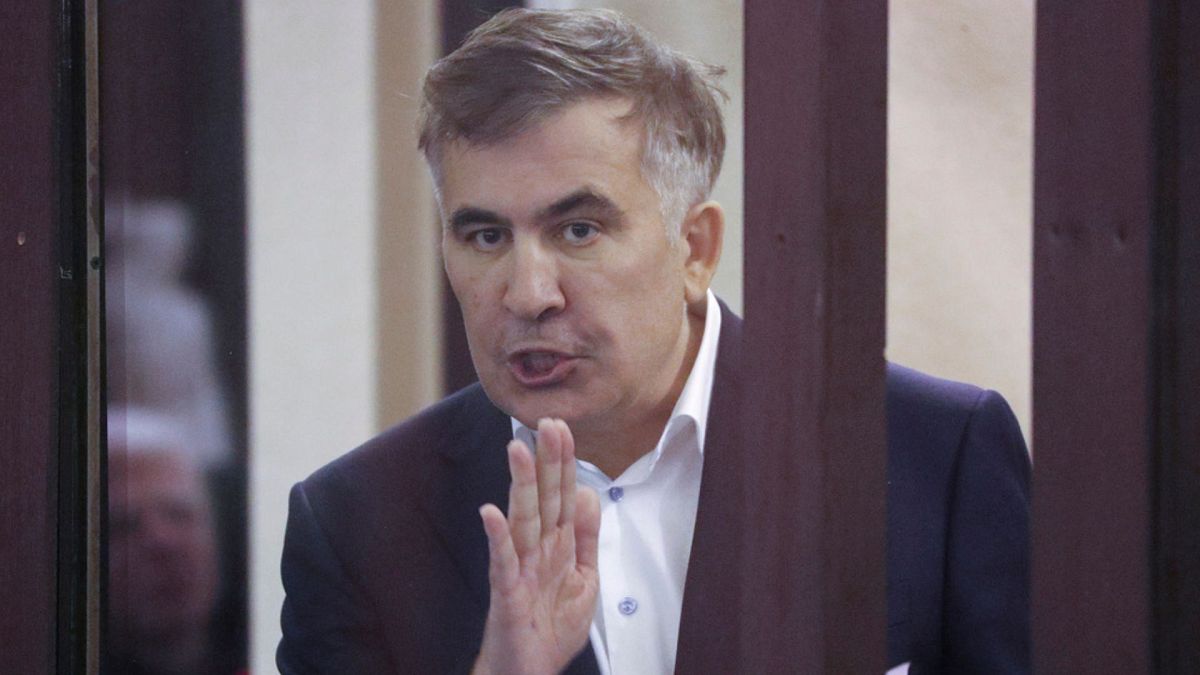World
Here’s how culture is used to treat mental health issues in Europe

Two decades’ worth of research and a pandemic have led to a boom in
programmes using culture for its health benefits.
A growing number of initiatives across Europe are using access to the arts as a tool to improve health and well-being alongside classic medical treatment.
In the Danish town of Silkeborg, a group of new mothers who suffered from postpartum depression reported feeling closer to their newborns, calmer and more optimistic after taking part in weekly singing sessions designed to improve their mental health.
Similar results were also observed in groups also participating in the World Health Organisation’s (WHO) Music for Motherhood project in four other cities in Italy and Romania.
“Just like being physically active has health benefits, being culturally active also has health benefits,” Nils Fietje, Technical Officer at the World Health Organisation and co-director of its Arts and Health Lab, told Euronews.
“There is a social component to it, of course, which you can get in other ways as well,” he said. “But the music and what it catalyses is clearly a factor that improves response, and we saw a profound impact on the recovery rates of mothers with postpartum depression.”
Arts play ‘major role’ in health
Extensive research has been conducted over the past 25 years into the effect art has on health and well-being.
A WHO report in 2019 found that art plays a “major role” in the improvement of individuals’ health and well-being, as well as the prevention of illness across lifespans. It concluded that “the beneficial impact of the arts could be furthered through acknowledging and acting on the growing evidence base” and included a call for governments globally to promote engagement in the arts.
“That report is like our Bible,” said Kornelia Kiss, who oversees Culture For Health, a project partially funded by the European Commission with the aim of growing awareness of programmes that employ culture for its health benefits across Europe and beyond.
“We’ve taken the Bible and expanded it.”
After 18 months of data gathering, Culture for Health presented its findings at a conference in Elefsina, Greece, on 9 June where it also issued some policy recommendations to be applied on the EU level.
It called, for instance, for the EU to finance training and conferences to draw awareness to the kinds of projects that can be implemented and to boost investment in prevention and health promotion.
It also recommended the promotion of the use of culture-based social prescribing across the EU, as well as the addition of dedicated provisions in policy documents. But the most crucial step, Kiss explained, is “to have these discussions locally, in as many member states as possible.”
‘Let’s put these lessons to work’
Access to culture is mentioned as one of the elements of an individual’s life that has an “important impact on mental health” in the Commission’s long-awaiting comprehensive approach to mental health published earlier this month. Access to nature, sports and proper living conditions are also championed.
“Obstacles to good mental health cannot be overcome within the health system alone,” the strategy document said. “Arts and culture are important in promoting the positive mental health and well-being of individuals and society in general by supporting social inclusion and reducing mental health stigma.”
The EU’s executive has made €1.23 billion in EU funds available to member states to support them in “putting people and their mental health first.”
Speaking at the Culture for Health conference in Elefsina, European Commissioner for the European way of life Margaritis Schinas called the organisation’s policy recommendations “very thought-provoking,” adding the EU must now “draw on all this evidence.”
“We have learned a lot,” he said, “now let’s put these lessons to work.”

World
The Tren de Aragua gang started in a Venezuelan prison. Now US politics are focusing on it
CARACAS, Venezuela (AP) — Debates over President Donald Trump’s hardline migration policies are focused on the Venezuelan gang Tren de Aragua, to some a ruthless transnational criminal organization and to others the pretext for an overhyped anti-migrant narrative.
Trump labeled the Tren de Aragua an invading force on Saturday when he invoked the Alien Enemies Act, a little-used authority from 1798 that allows the president to deport any noncitizen during wartime. Hours later, the Trump administration transferred hundreds of immigrants to El Salvador even as a federal judge issued an order temporarily barring the deportations. Flights were in the air when the ruling came down.
The Alien Enemies Act requires a president to declare the United States at war, giving him extraordinary powers to detain or remove foreigners to whom immigration or criminal laws otherwise protect. It had been used only three times — the last time to justify the detention of Japanese-American civilians during World War II.
The Trump administration has not identified the more than 200 immigrants deported, provided any evidence they are in fact members of Tren de Aragua or that they committed any crimes in the United States.
Gang gains notoriety in the US
From the heartland to major cities like New York and Chicago, the gang has been blamed for sex trafficking, drug smuggling and police shootings, as well as the exploitation of the nearly 1 million Venezuelan migrants have crossed into the U.S. in recent years. Trump told Congress this month that a Venezuelan migrant found guilty of murdering 22-year-old nursing student Laken Riley on the University of Georgia campus was a member of the gang.
The size of the gang is unclear as is the extent to which its actions are coordinated across state lines and national borders.
The Venezuelan gang entered U.S. political discourse after footage from a security camera surfaced on social media last summer showing heavily armed men entering an apartment in the Denver suburb of Aurora shortly before a fatal shooting outside. In response, Trump vowed to “ liberate Aurora ” from Venezuelans he falsely said were “taking over the whole town.”
The city initially downplayed concerns. But most of the apartment complex was closed under an emergency order last month after officials said they suspected Tren de Aragua members in the kidnapping and assault of two residents.
Most of the men seen in the video have been arrested, with Immigration and Customs Enforcement accusing them of gang membership.
The Tren originated in an infamous prison
The Tren, which means “train” in Spanish, traces its origin more than a decade ago to an infamously lawless prison with hardened criminals in the central state of Aragua. It has expanded in recent years as more than 8 million Venezuelans fled economic turmoil under President Nicolás Maduro’s rule and migrated to other parts of Latin America or the U.S.
Countries such as Peru and Colombia — all with large populations of Venezuelan migrants — have accused the group of being behind a spree of violence in a region that has long had some of the highest murder rates in the world. Some of its crimes have spread panic in poor neighborhoods, where the gang extorts local businesses and illegally charges residents for “protection.”
The gang operates as a loose network in the U.S. Tattoos, which are commonly used by Central American gangs, aren’t required for those affiliated with the Tren, said Ronna Risquez, a Venezuelan journalist who wrote a 2023 book about the gang’s origins.
Trump targets the Tren
On his first day in office, Trump he took steps to designate the gang a “foreign terrorist organization” alongside several Mexican drug cartels. The Biden administration had sanctioned the gang and offered $12 million in rewards for the arrest of three of its leaders.
Trump’s executive order Saturday accused the gang of working closely with top Maduro officials — most notably the former vice president and one-time governor of Aragua state, Tareck El Aissami, — to infiltrate migration flows, flood the U.S. with cocaine and plot against the country.
“The result is a hybrid criminal state that is perpetrating an invasion of and predatory incursion into the United States, and which poses a substantial danger to the United States,” Trump’s executive order alleged.
Wes Tabor, who headed the Drug Enforcement Administration’s office in Venezuela when the gang first came onto law enforcement radar, said Trump’s decision to give the DEA and other federal agencies authority to carry out immigrant arrests is a “force multiplier” that will curtail the Tren’s activities in the U.S.
Tabor said authorities need to build a robust database like it did when combating El Salvador’s MS-13 containing biometric data, arrest information and intelligence from foreign law enforcement partners.
“We have to use a hammer on an ant because if we don’t it will get out of control,” said Tabor. “We need to smash it now.”
Venezuelan officials protest
In Venezuela, officials originally expressed bafflement at the U.S. interest in the Tren, claiming it had dismantled the gang after retaking control of the prison where the group was born.
As Trump’s immigration crackdown has intensified, they’ve conditioned their cooperation with U.S. deportation flights on progress in other areas in the long-strained bilateral relationship.
Last month, authorities gave a hero’s welcome to some 190 Venezuelan migrants deported by Trump, accusing the U.S. of spreading an “ill-intentioned” and “false” narrative about the Tren in the U.S. They said most Venezuelan immigrants are decent, hard-working people and that U.S. officials were looking to stigmatize the South American nation.
Over the weekend they protested the use of Trump’s invocation of the wartime rules, likening it to the “darkest episodes in human history, from slavery to the horror of the Nazi concentration camps.”
World
Syria's new regime hits Hezbollah targets in Lebanon over claims its fighters were executed

Fighting along the Syrian-Lebanese border intensified on Monday as deadly clashes erupted between the Syrian military and Hezbollah-aligned forces.
The escalation follows accusations from Syria’s interim government that Hezbollah terrorists crossed into Syrian territory, kidnapped three soldiers and executed them on Lebanese soil. In response, the Syrian army launched artillery strikes on Hezbollah positions, targeting what it called “gatherings” of fighters responsible for the killings. Hezbollah has denied involvement.
The Lebanese newspaper Al-Akhbar, which is affiliated with Hezbollah, reported that the Syrian army successfully captured the village of Hawsh al-Sayyid Ali on the Syria-Lebanon border during the confrontations. Currently, most of the fighting is near the village of Al-Qasr.
Earlier this morning, the Saudi-owned Al Arabiya reported intermittent clashes between the Syrian army and Hezbollah forces along the border. The report also claimed that a Hezbollah ammunition depot in Lebanon was destroyed by Syrian artillery fire.
ISRAEL FACES NEW SYRIA CHALLENGE AS IT ADJUSTS TO NEW STRATEGY AMID REGIONAL POWER STRUGGLE FOR INFLUENCE
The Syrian Defense Ministry dispatched reinforcement convoys after the alleged killing of three Syrian soldiers by Hezbollah to the border with Lebanon in Homs, Syria, on March 17, 2025. (Ebu Bekr Sakka/Anadolu via Getty Images)
Lebanese President Joseph Aoun addressed the escalating violence, saying, “What is happening on the eastern and northeastern border cannot continue, and we will not accept its continuation. I have instructed the Lebanese army to respond to the sources of fire.”
According to the Syrian Observatory for Human Rights, at least five additional Syrian soldiers were killed during the clashes. Civilians, including families with young children, were seen fleeing toward the Syrian village of Hermel as violence spread across the border region.
The newly established Syrian government, led by Ahmad al-Sharaa of the U.S.-sanctioned terrorist group Hayat Tahrir al-Sham, issued a rare statement vowing retaliation against Hezbollah.
“They took them to Lebanese territory and killed them. The Ministry of Defense will take all necessary measures in response to this escalation by Hezbollah,” the statement reads.
The conflict reflects deeper sectarian and ideological divisions. HTS, a Sunni terrorist group with roots in Syria’s jihadist insurgency and former ties to al Qaeda, and Hezbollah, a Shiite terrorist force backed by Iran, represent opposing factions in the ongoing struggle for regional dominance.

Hezbollah fighters attend the funeral of their commander, Wissam al-Tawil, in the village of Khirbet Selm, Lebanon, on Jan. 9, 2024. (AP Photo/Hussein Malla)
“Hezbollah is trying to take advantage of the new government’s weakness in Syria, but the group itself is in a precarious position. It has suffered major setbacks from Israeli strikes, the fall of Assad, and now new adversaries in Syria,” Javed Ali, a professor at the University of Michigan’s Ford School of Public Policy and former senior director at the National Security Council, told Fox News Digital.
The collapse of President Bashar Assad’s government in December marked a major turning point, as Hezbollah had spent 14 years backing him alongside Russia and Iran’s pro-Shiite militias. However, in late November, Syrian rebels launched a surprise offensive against Assad’s forces, just as a ceasefire was announced in northern Gaza, leading to the final collapse of his rule.
EVANGELICAL LEADER SAYS US MUST PROTECT SYRIAN CHRISTIANS FROM ATTACKS BY JIHADI TERRORISTS

Newly elected Lebanese President Joseph Aoun is shown in Beirut on Jan. 9, 2025. (AP Photo/Hussein Malla)
Now in power, HTS has pledged to crack down on weapons and drug smuggling along the border, a move that directly threatens Hezbollah’s operations. The new Syrian government has already begun military deployments to secure its borders, further restricting Hezbollah’s ability to maneuver.
“Hezbollah is facing a confluence of threats unlike any time in its history,” said Ali. “With HTS consolidating control in Syria, Hezbollah’s overland weapons supply route from Iran has been severely compromised. This disruption could significantly degrade its operational capabilities.”
The rise of HTS as a governing force in Syria has also drawn U.S. attention. While Washington has designated HTS as a terrorist organization, analysts suggest that al-Sharaa’s pragmatic approach should be assessed cautiously.
“The U.S. is navigating a complex landscape in Syria, and while it does not officially recognize HTS, there are strategic interests in seeing Hezbollah and Iranian influence further weakened,” Ali noted.
HTS has attempted to rebrand itself from its extremist origins, portraying itself as a nationalist Islamist movement opposed to Iranian influence and Hezbollah’s expansion in Syria. While skepticism remains, the group’s control over key Syrian territory disrupts Iran’s ability to maintain a direct supply corridor to Hezbollah in Lebanon.

A protester holds a placard with a photo of Ahmad al-Sharaa and the words “It doesn’t matter if he wears a turban or a tie, a murderer is a murderer” during a demonstration on March 11, 2025. (Murat Kocabas/SOPA Images/LightRocket via Getty Images)
Beyond Syria, Hezbollah is also facing growing challenges in Lebanon. The group’s losses in recent confrontations with Israel have emboldened its domestic opponents, who now see an opportunity to weaken its grip on Lebanese politics.
Former Lebanese President Michel Aoun echoed these concerns, highlighting three major threats to Lebanon’s stability: ongoing Israeli attacks, Hezbollah’s involvement in cross-border violence, and the unresolved Syrian refugee crisis.
“Officials must take immediate action to protect the safety of the nation and its citizens,” he said.
Further complicating the situation, Mounir Shehadeh, a former Lebanese government coordinator with the United Nations Interim Force peacekeeping mission in Lebanon, said “there is no presence of Hezbollah in the northeastern Bekaa Valley, and this is known by the people and tribes in the region.” His statement contradicts reports of Hezbollah’s activity along the Lebanese-Syrian border, raising questions about the true extent of its control.
Analysts say the long-term implications of these developments remain uncertain, but Hezbollah’s regional position is rapidly deteriorating. While Lebanese and Syrian officials are working to contain the crisis, the risk of further escalation remains high.
World
Georgia ex-President Mikheil Saakashvili handed second prison sentence

Saakashvili was found guilty of illegal border crossing and given a second prison sentence of four and a half years on Monday, in addition to his existing sentence on charges of abuse of power and embezzlement.
A Georgian court sentenced former President Mikheil Saakashvili to another prison term on Monday, extending his imprisonment time to 12 and a half years.
Saakashvili, who served as Georgia’s president from 2004-2013, had previously been sentenced on charges of abuse of power and embezzlement that he and his defence have rejected as politically motivated.
Judge Badri Kochlamazashvili sentenced the 57-year-old ex-president to an extra four years and six months on charges of illegal border crossing, adding time to his existing sentence.
Speaking by videoconference, Saakashvili dismissed the verdict as an “absolutely illegal, unjust sentencing of me for crimes I have not committed.”
“They want to annihilate me in prison,” he said. “But no matter what, I will fight till the end,” he vowed.
According to his lawyer, Beka Basilaia, Monday’s verdict “again showed that Saakashvili is a political prisoner.”
Saakashvili, a controversial reformist
Saakashvili is also accused of repressing demonstrators who claimed that his fervour had turned into dictatorship.
The former president, who led the country in a more pro-Western direction, led the so-called Rose Revolution protests in 2003 that drove his predecessor out of office and enacted a series of ambitious reforms tackling official corruption.
In 2008, he oversaw a brief but intense war with Russia that ended with the humiliating loss of the remaining Georgian bases in two separatist territories.
His reign was brought to an end in the 2012 election when the then newly formed Georgian Dream Party defeated Saakashvili’s United National Movement party.
Saakashvili left for Ukraine in 2013 and became a citizen. From 2015 to 2016, he governed the southern Odesa region.
However, he was swiftly detained when he returned to Georgia in October 2021 in an attempt to strengthen opposition forces before the national municipal elections.
Georgian Dream accused of influencing verdict
Saakashvili’s lawyer on Monday accused the ruling Georgian Dream of influencing the latest extension of the ex-Georgian leader’s prison term.
“As long as Georgian Dream remains in power, the judiciary is a farce and will make whatever decision it is instructed to,” Basilaia said.
Since 2012, when Saakashvili was ousted from office, the Georgian Dream Party has remained in power and itself has recently been facing criticisms and popular protests on allegations of a crackdown on democratic freedoms.
The party is also accused of steering the country away from the path toward European Union membership and back into Russia’s sphere of influence.
After going on multiple hunger strikes, Saakashvili is currently being treated at the Vivamedi facility, where he is being monitored for a number of chronic illnesses, according to the clinic.
-

 News1 week ago
News1 week agoGene Hackman Lost His Wife and Caregiver, and Spent 7 Days Alone
-

 Politics1 week ago
Politics1 week agoRepublicans demand Trump cut American legal association out of nominee process
-

 Politics1 week ago
Politics1 week agoAgriculture secretary cancels $600K grant for study on menstrual cycles in transgender men
-

 News1 week ago
News1 week agoStates sue Trump administration over mass firings of federal employees
-

 News1 week ago
News1 week agoTrump Seeks to Bar Student Loan Relief to Workers Aiding Migrants and Trans Kids
-

 News6 days ago
News6 days agoGrieving Covid Losses, Five Years Later
-

 World6 days ago
World6 days agoUkraine accepts 30-day ceasefire in US talks: What it means for Russia war
-

 News6 days ago
News6 days agoUnruly Passenger Swallows Rosary Beads on American Airlines Flight


















